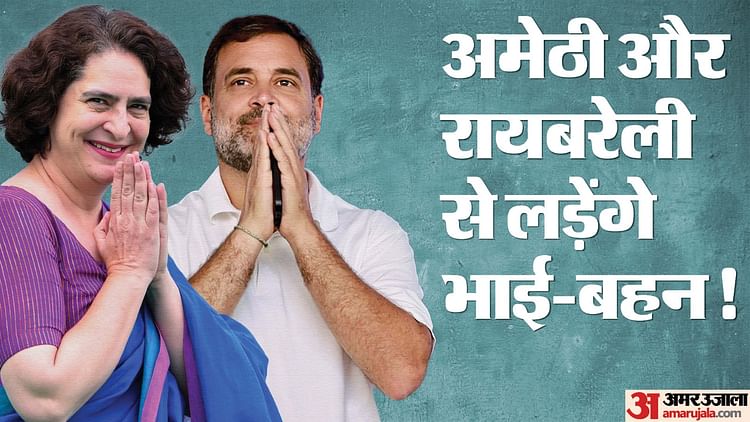Punjab, Uttarakhand and Goa will have a single-day poll on February 14, while Manipur will vote in two phases on February 27 and March 3.
Polling in UP — stretching over seven phases on February 10, 14, 20, 23, 27 and March 3 and 7 — will be followed closely as it has been the mainstay of BJP’s successive Lok Sabha majorities in 2014 and 2019 besides delivering a sweeping verdict for the saffron party in the 2017 state poll. Counting for all the states will be done on March 10.
Besides determining who wins Uttar Pradesh, the largest state which, among the national players, is especially crucial for BJP, the polls also present Congress with an opportunity to reverse a narrative of inexorable decline and stave off the challenge facing the party leadership from within and outside. The UP outcome, while obviously important for SP and BSP leaders Akhilesh Yadav and Mayawati, will be crucial for chief minister Yogi Adityanath as a win for BJP will secure his place in the saffron pantheon and put a premium on his firebrand politics. It is a personal challenge as well — no chief minister of UP has been re-elected since 1985.
Besides, the contests hold the key to the viability of the national ambitions of AAP and Trinamool, which have been trying hard to expand their footprint beyond Delhi and Bengal, in that order.
Announced amid a surge of Covid cases, the state elections also represent a challenge for the Election Commission, which was criticised by many for allegedly failing to take adequate action to prevent the spread of Covid during West Bengal and Assam polls last year. The EC on Saturday justified its decision to hold polls saying that it was committed to holding free, fair and safe polls before cessation of term of the respective state assemblies.

“Article 172(1) of the Constitution of India states clearly that every legislative assembly…unless sooner dissolved, shall continue for five years…and no longer…Holding of timely elections is the essence of maintaining democratic governance,” chief election commissioner Sushil Chandra, who was flanked by election commissioners Rajiv Kumar and Anup Chandra Pandey, said at the press conference to declare the poll dates. The terms of five state assemblies concerned are due to expire starting from March 15, 2022.
The EC on Saturday made it clear that it had closely studied the Covid situation in consultation with the health ministry, home ministry, state administrations and medical experts, before drawing a detailed protocol for Covid-safe polls. This includes cutting the number of voters per polling station to 1,250 from 1,500; asking the poll-going states to expedite their vaccination rates, ensuring that all polling staff are vaccinated including with the precautionary dose, and slapping a complete ban on physical rallies, roadshows, padyatras and processions until January 15, which EC shall review depending on the “dynamic” Covid situation.
“We should have faith that we can pass through this particular pandemic also, through our safety measures and through Covid-appropriate behaviour…only then can we sail through the electoral process, as we have done in the past two (rounds of assembly) elections also,” said Chandra.
It announced revised Covid guidelines, which disallow physical rallies, roadshows, padyatras, vehicle rallies and processions till January 15. EC also advised the parties to conduct their campaign as much as possible through digital, virtual, media platforms and mobile-based mode instead of physical mode. However, as and when EC permits the physical rallies during campaign period depending on the situation, they will have to adhere to Covid guidelines, with maximum limit of participants as per extant directions of the state disaster management authority. No rallies however would be allowed between 8pm and 8am on campaign days.
EC further directed that during the electoral process, the chief secretary at the state level and district magistrate at the district level shall be primarily responsible for monitoring, supervision and strict enforcement of EC’s Covid norms and guidelines issues by NDMA and respective SDMA. It further clarified that its broad guidelines were being modified comprehensively to “complement and not to substitute” the mandate or responsibility of the authorities or committees under the Disaster Management Act.
Chandra said the EC could not only take strict action against officers who fail to enforce Covid guidelines but shall also cancel future rallies of parties and candidates in the event of serious violations.
!function(f,b,e,v,n,t,s) {if(f.fbq)return;n=f.fbq=function(){n.callMethod? n.callMethod.apply(n,arguments):n.queue.push(arguments)}; if(!f._fbq)f._fbq=n;n.push=n;n.loaded=!0;n.version=’2.0′; n.queue=[];t=b.createElement(e);t.async=!0; t.src=v;s=b.getElementsByTagName(e)[0]; s.parentNode.insertBefore(t,s)}(window, document,’script’, ‘https://connect.facebook.net/en_US/fbevents.js’); fbq(‘init’, ‘593671331875494’); fbq(‘track’, ‘PageView’);







More News
Karnataka Lok Sabha Elections 2024: Voting Timings, Key Candidates And Phase 2 Polling Constituencies
PM Modi speaks to Italian counterpart Giorgia Meloni, thanks her for G7 summit invite | India News – Times of India
Over 2.75 Crore Voters To Vote For 194 Contestants In 20 Lok Sabha Seats In Kerala Tomorrow